Trauma and violence-informed movement

The benefits of physical activity are well known and plentiful. Due to these benefits, engaging in physical activity has been recommended by the WHO and the Government of Canada. However, access to physical activity isn’t always easy or straightforward. Barriers to physical activity prevent certain groups of people from accessing and engaging in physical activity or movement.
Some of these barriers include:
-Appropriateness of programming
-Perceived personal and community safety
-Availability of childcare/sibling care
-Access to infrastructure (recreational facilities, bike lanes, etc.)
-Resources required to participate in physical activity, such as clothing, shoes, or equipment
-Transportation to and from programming
Trauma- and violence-informed physical activity (TVIPA) is an approach that aims to address these barriers by increasing the accessibility to physical activity and movement for all.
The Health and Wellness Equity Research Group (HWERG) from Carleton University (link) is leading a community-based project, which is co-developing, delivering, and evaluating trauma-and violence-informed physical activity (TVIPA) programming in three geographically and culturally diverse sites in Ottawa and Toronto, Ontario, and Vancouver, British Columbia. The project aims to improve access to TVIPA, create opportunities for social connections, community cohesion, and to improve overall health and well-being of women and children who have experienced or are experiencing family violence.
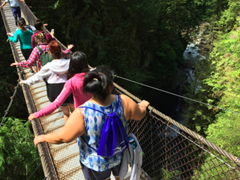
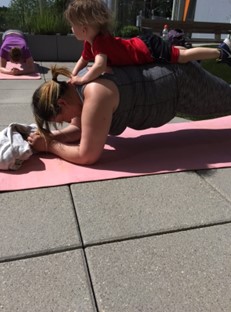
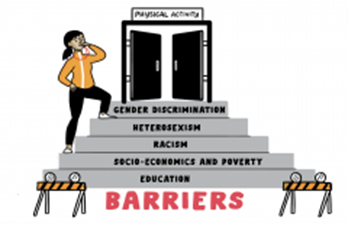
In March 2024 the team shared the launch of the modules on a Knowledge Hub Presents.
Community of Practice members:
Francine Darroch
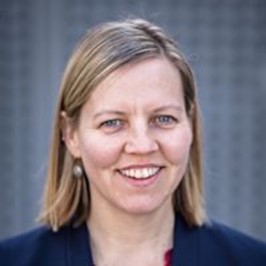
Dr. Francine Darroch is an Associate Professor in the Department of Health Sciences at Carleton University. She is an interdisciplinary researcher with expertise in qualitative health research, public health, inequities in pregnancy and physical activity, maternal health, and the intersections of racism, gender-based violence, substance abuse, trauma, and structural violence. As founder of the Health and Wellness Equity Research Group at Carleton University, Dr. Darroch leads feminist participatory action research that focuses on leveraging physical activity to improve the quality of life of self-identified women and their families. Her current work aims to address inequities in physical activity for pregnant and parenting individuals and families through trauma- and violence-informed approaches to physical activity. While Dr. Darroch’s research is predominantly focused on self-identified women and children, her work also extends to explore and advocate for gender-sensitive programming for fathers living in marginalizing circumstances. Dr. Darroch’s main overarching goal is to co-create programs and resources to increase access to physical activity, enhance social cohesion, community connections, and improve overall health by way of addressing individual, systemic, and structural barriers to health and well-being.
Overall, Dr. Darroch’s multi-faceted research efforts are a reflection of her passionate commitment to social justice, health equity, and challenging power differentials in research practices as an advocate for populations that experience systemic marginalization.
Lyndsay Hayhurst

Lyndsay Hayhurst is a Tier 2 York Research Chair in ‘Sport, Gender and Development and Digital Participatory Research’, Director of the ‘DREAMING Sport Lab’ (Digital participatory Research in Equity, Access, Mobility, Innovation aNd Gender in Sport Lab). She is an Associate Professor in the School of Kinesiology and Health Science at York University in Toronto, Canada.
Her research interests include sport for development and peace (SDP); gender-based violence and sexual and reproductive health in/through SDP; digital participatory action research; trauma-and violence-informed approaches to SDP; cultural studies of girlhood; postcolonial feminist theory; global governance, international relations and corporate social responsibility; SDP in Indigenous communities; and the gender, sport and environment nexus.
She is a co-author (with Holly Thorpe and Megan Chawansky) of Sport, Gender and Development: Intersections, Innovations and Future Trajectories; and co-editor (with Tess Kay and Megan Chawansky) of Beyond Sport for Development and Peace: Transnational perspectives on theory, policy and practice. Her publications have appeared in Women’s Studies International Forum; Gender, Place & Culture; Third World Quarterly and Sociology of Sport Journal. She has previously worked for the United Nations Development Programme and Right to Play.
Gabby Gonzalez Montaner
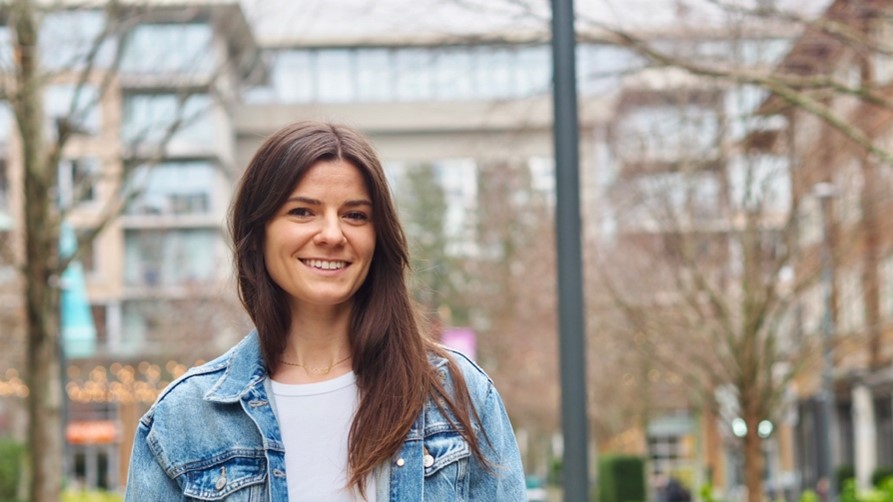
Gabby Gonzalez Montaner is a Research Manager at the Health and Wellness Equity Research Group at Carleton University. She has a Bachelor of Arts in Health Studies and a Master of Public Health. Motivated by her previous work with community-based trauma-informed housing, mental health, and physical activity programs and her own passion and need for physical activity and movement, her interests are in improving access to, and the availability of, trauma- and violence-informed physical activity programming for self-identified women. Currently, she is supporting the research group’s Public Health Agency of Canada funded project, Leveraging trauma- and violence-informed physical activity to support individuals who have experienced family violence: A community-based participatory approach.
